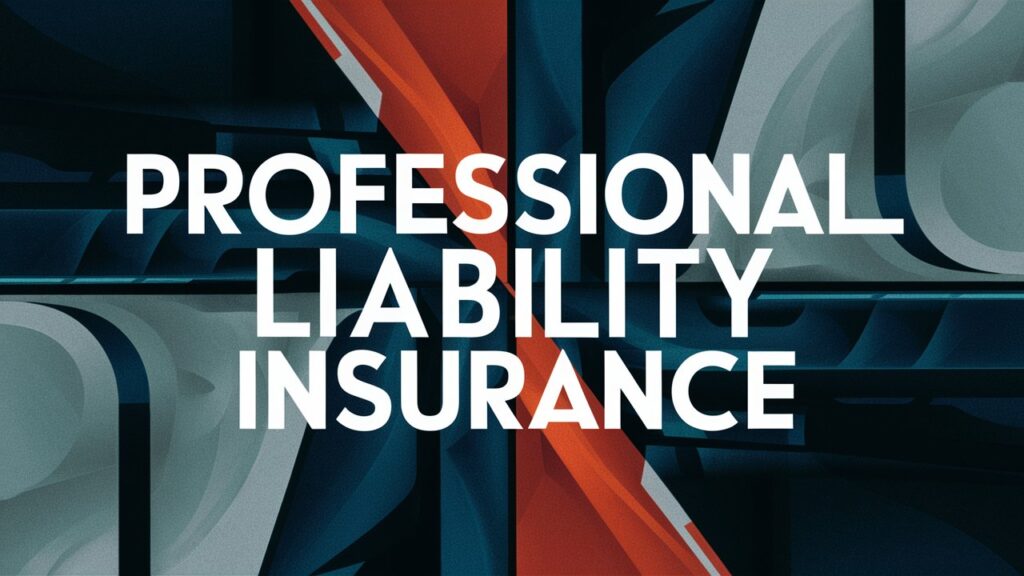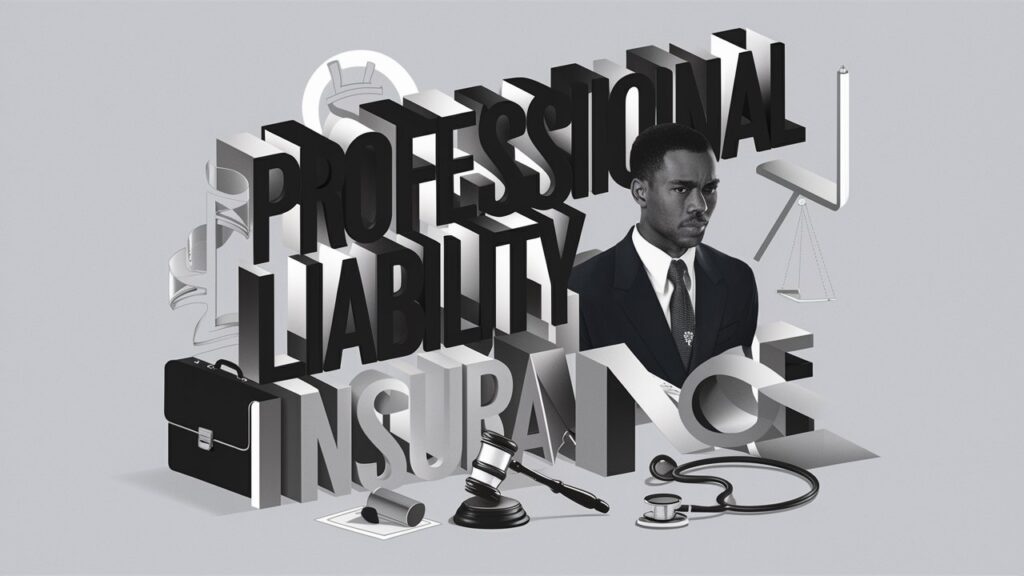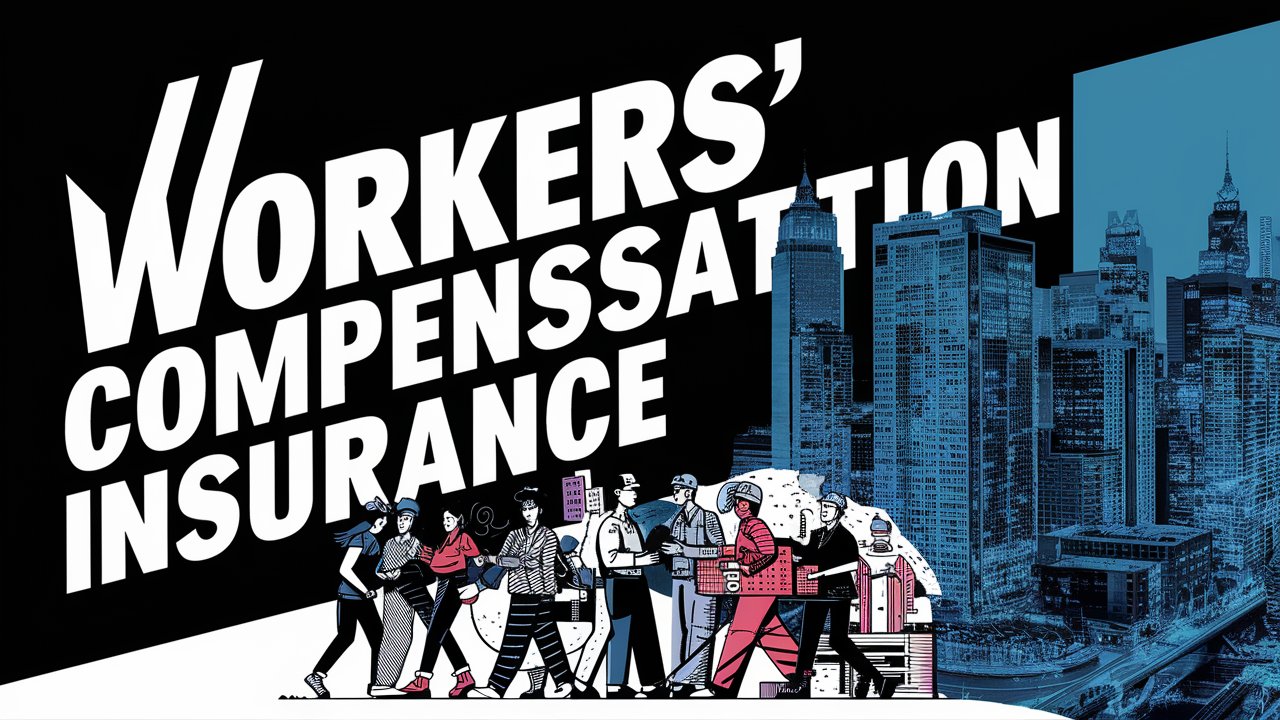In today’s fast-paced professional world, safeguarding your career and business from potential legal claims is crucial. Professional Liability Insurance, also known as Errors and Omissions Insurance, provides essential coverage against claims of negligence, errors, or omissions, ensuring your financial and reputational security.
Introduction
In today’s competitive and highly litigious business environment, protecting your professional reputation and financial stability is more important than ever. One key component of this protection is Professional Liability Insurance (PLI), also known as Errors and Omissions (E&O) Insurance. This specialized insurance coverage is designed to protect professionals from claims of negligence, errors, or omissions in the performance of their services. Whether you’re a doctor, lawyer, accountant, consultant, or any other professional offering expert services, understanding the ins and outs of Professional Liability Insurance is crucial to safeguarding your career and business.
What is Professional Liability Insurance?
Professional Liability Insurance is a type of insurance that provides coverage for professionals against claims of negligence, mistakes, or failures to perform their duties as expected. Unlike general liability insurance, which covers bodily injury and property damage, PLI specifically covers the financial losses suffered by clients due to professional errors or omissions.
Why is Professional Liability Insurance Important?
In professions where advice, expertise, or specialized services are offered, the potential for human error is inevitable. Even the most diligent and conscientious professionals can make mistakes. When such mistakes occur, they can lead to significant financial losses for clients, who may then seek compensation through legal action. PLI helps protect professionals from the financial burden of defending against such claims and paying any resulting settlements or judgments.
Who Needs Professional Liability Insurance?
Professional Liability Insurance is essential for a wide range of professionals,
- Doctors and Medical Practitioners: To cover malpractice claims.
- Lawyers: To protect against claims of legal malpractice.
- Accountants and Financial Advisors: For errors in financial advice or services.
- Consultants and Business Advisors: To cover mistakes in advice or recommendations.
- Architects and Engineers: For design errors or omissions.
- IT Professionals and Software Developers: For failures in software or IT services.
- Real Estate Agents and Brokers: For errors in property transactions.
Key Components of Professional Liability Insurance
Coverage Inclusions
Professional Liability Insurance typically covers,
- Legal Defense Costs
The cost of defending against a claim, regardless of its merit.
- Settlements and Judgments
Financial compensation awarded to the claimant.
- Disciplinary Proceedings
Costs associated with defending against professional disciplinary actions.
- Loss of Earnings
Coverage for lost income due to time spent in court.
Coverage Exclusions
PLI policies generally do not cover,
- Intentional Wrongdoing
Fraudulent or illegal activities.
- Bodily Injury and Property Damage
Typically covered by general liability insurance.
- Employment Practices
Claims related to employment issues like discrimination or harassment.
- Product Liability
Issues related to the products sold or manufactured.
Claims-Made vs. Occurrence Policies
Professional Liability Insurance policies can be structured as either claims-made or occurrence policies
Claims-Made Policies
Coverage is provided if the claim is made during the policy period, regardless of when the incident occurred.

Occurrence Policies
Coverage is provided for incidents that occur during the policy period, regardless of when the claim is made.
Choosing the Right Professional Liability Insurance
Assessing Your Risks
The first step in choosing the right PLI policy is to assess the specific risks associated with your profession. Consider the types of services you offer, the potential for errors, and the financial impact those errors could have on your clients.
Comparing Policies and Providers
When comparing PLI policies, it’s important to look at
- Coverage Limits
The maximum amount the insurer will pay for a claim.
- Deductibles
The amount you will need to pay out of pocket before the insurance coverage kicks in.
- Premiums
The cost of the policy.
- Additional Coverage Options
Such as cyber liability or intellectual property coverage.
Understanding Policy Terms
Carefully review the terms and conditions of any policy you consider. Pay close attention to
- Exclusions
Specific situations or claims that are not covered.
- Retroactive Date
The date from which coverage is provided for incidents that occurred in the past.
- Extended Reporting Period
An option to extend the time during which claims can be reported after the policy has expired.
The Claims Process
Reporting a Claim
When a claim arises, it’s crucial to report it to your insurer as soon as possible. Delays in reporting can lead to coverage being denied. Provide all necessary documentation and details about the incident.
The Investigation
Once a claim is reported, the insurer will investigate the circumstances surrounding the claim. This may involve reviewing documents, interviewing involved parties, and consulting with experts.
Resolution
The resolution of a claim can involve several outcomes,
- Dismissal
If the claim is found to be without merit.
- Settlement
An agreement to pay a sum of money to the claimant to resolve the claim.
- Court Judgment
A decision made by a court if the claim goes to trial.
Benefits of Professional Liability Insurance
Financial Protection
PLI provides essential financial protection by covering the costs associated with defending against claims and paying settlements or judgments. This can prevent significant financial strain on your business or personal finances.

Reputation Management
Being sued can damage your professional reputation. Having PLI in place demonstrates your commitment to addressing potential errors and protecting your clients, which can help maintain trust and credibility.
Peace of Mind
Knowing that you have coverage in place to handle potential claims allows you to focus on your work without the constant worry of potential legal actions.
Case Studies-Professional Liability Insurance in Action
Medical Malpractice
A surgeon faced a lawsuit after a patient developed complications following surgery. The surgeon’s Professional Liability Insurance covered the legal defense costs and the settlement, ensuring that the surgeon’s personal assets were protected.
Legal Malpractice
A lawyer was sued for providing incorrect legal advice that led to significant financial losses for a client. The lawyer’s PLI policy covered the costs of defending against the claim and the resulting judgment, preventing financial ruin.

Accounting Errors
An accountant made an error in a client’s tax return, resulting in a large tax penalty. The client sued for damages, and the accountant’s PLI policy covered the legal costs and the penalty amount, preserving the accountant’s business.
Common Misconceptions About Professional Liability Insurance
“I Don’t Need It; I’m Very Careful”
Even the most careful professionals can make mistakes. PLI is there to protect against the unexpected and unforeseen errors that can occur.
“It’s Too Expensive”
The cost of PLI is often much less than the potential costs of defending against a claim or paying a settlement out of pocket. It’s a small price to pay for substantial protection.
“My General Liability Insurance Covers Everything”
General liability insurance does not cover claims related to professional errors or omissions. PLI is specifically designed to cover these types of claims.
Tips for Reducing Professional Liability Risks
Maintain Clear Communication
Ensure that all client communications are clear and documented. Misunderstandings can often lead to claims, so it’s important to set clear expectations from the outset.
Keep Detailed Records
Maintain thorough records of all client interactions, decisions, and services provided. These records can be crucial in defending against claims.
Stay Current with Industry Standards
Continually update your skills and knowledge to ensure that you are providing the most accurate and up-to-date advice and services.
Use Contracts and Agreements
Always use detailed contracts and agreements that outline the scope of services, responsibilities, and expectations. This can help prevent disputes and clarify any misunderstandings.
Conclusion
Professional Liability Insurance is a vital safeguard for anyone providing professional services. It offers financial protection, supports reputation management, and provides peace of mind, enabling professionals to focus on their work without the constant fear of legal repercussions. By understanding the importance of PLI, assessing your risks, and choosing the right policy, you can ensure that you are well-protected against the uncertainties of professional practice. Whether you’re just starting your career or have been in practice for years, investing in Professional Liability Insurance is a wise decision that can save you from potentially devastating financial and reputational damage.
For more details please visit our home page: Click Here

